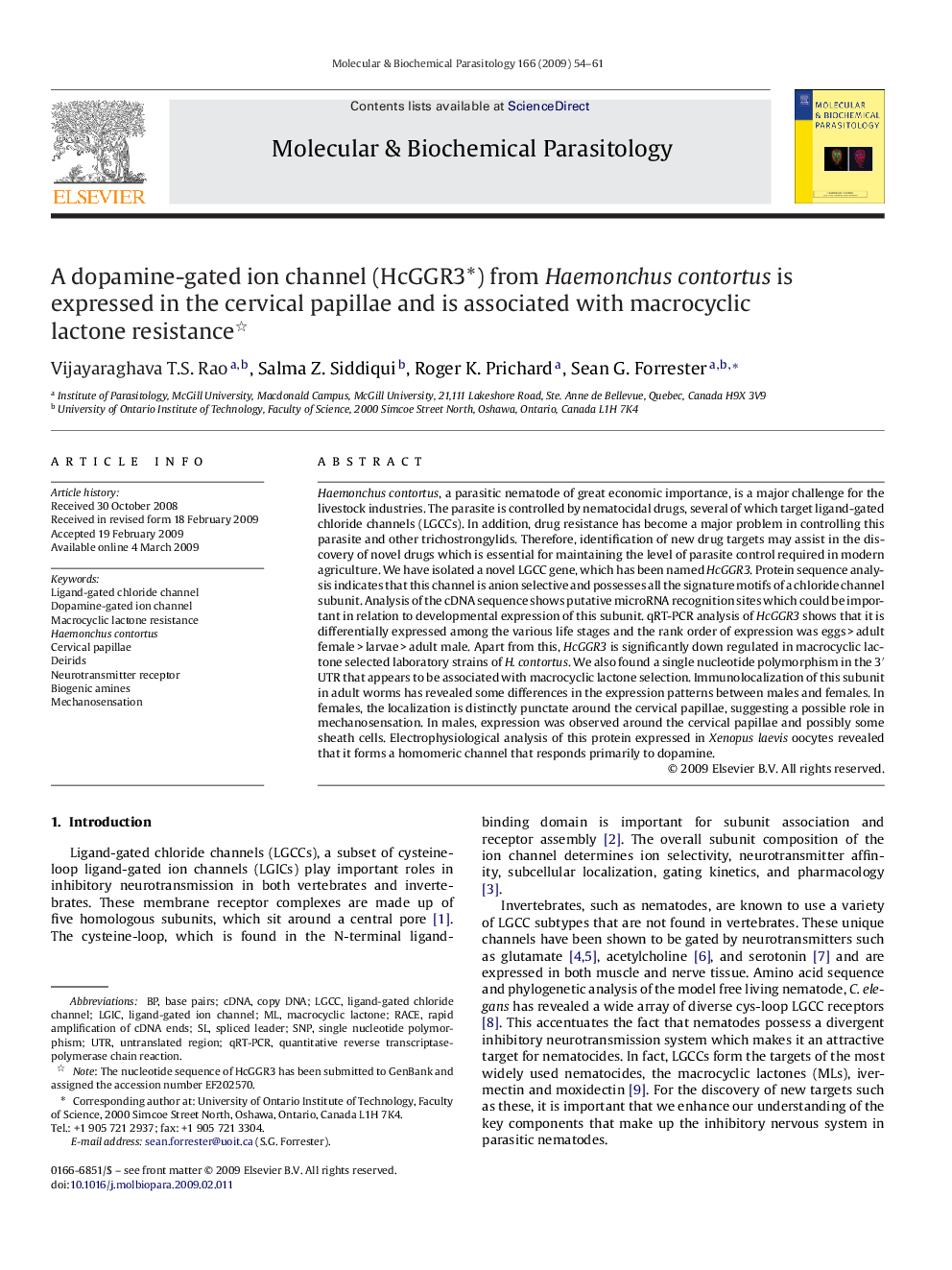| Article ID | Journal | Published Year | Pages | File Type |
|---|---|---|---|---|
| 2830019 | Molecular and Biochemical Parasitology | 2009 | 8 Pages |
Haemonchus contortus, a parasitic nematode of great economic importance, is a major challenge for the livestock industries. The parasite is controlled by nematocidal drugs, several of which target ligand-gated chloride channels (LGCCs). In addition, drug resistance has become a major problem in controlling this parasite and other trichostrongylids. Therefore, identification of new drug targets may assist in the discovery of novel drugs which is essential for maintaining the level of parasite control required in modern agriculture. We have isolated a novel LGCC gene, which has been named HcGGR3. Protein sequence analysis indicates that this channel is anion selective and possesses all the signature motifs of a chloride channel subunit. Analysis of the cDNA sequence shows putative microRNA recognition sites which could be important in relation to developmental expression of this subunit. qRT-PCR analysis of HcGGR3 shows that it is differentially expressed among the various life stages and the rank order of expression was eggs > adult female > larvae > adult male. Apart from this, HcGGR3 is significantly down regulated in macrocyclic lactone selected laboratory strains of H. contortus. We also found a single nucleotide polymorphism in the 3′ UTR that appears to be associated with macrocyclic lactone selection. Immunolocalization of this subunit in adult worms has revealed some differences in the expression patterns between males and females. In females, the localization is distinctly punctate around the cervical papillae, suggesting a possible role in mechanosensation. In males, expression was observed around the cervical papillae and possibly some sheath cells. Electrophysiological analysis of this protein expressed in Xenopus laevis oocytes revealed that it forms a homomeric channel that responds primarily to dopamine.
